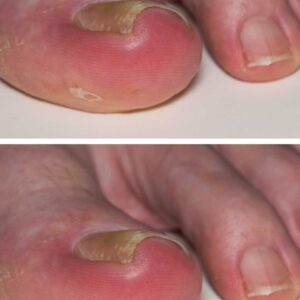Vertigo is a sensation of spinning or dizziness that can significantly affect a person’s balance and quality of life. It is not a disease itself but a symptom of various underlying conditions. People experiencing vertigo may feel as though they or their surroundings are moving when there is no actual movement. This disorienting sensation can lead to difficulties in performing everyday tasks, increasing the risk of falls and injuries. Understanding vertigo and how to manage it is crucial for those who suffer from this condition.
Understanding the Causes of Vertigo
Vertigo can be caused by a variety of factors, including inner ear problems, vestibular disorders, head injuries, or neurological conditions. The most common cause is Benign Paroxysmal Positional Vertigo (BPPV), which occurs when tiny calcium particles clump up in the inner ear canals. Other causes include Meniere’s disease, labyrinthitis, and vestibular neuritis. Identifying the root cause of vertigo is essential for effective treatment and management.
Advertisement
Identifying the Symptoms of Vertigo
Symptoms of vertigo can vary in intensity and duration. Common symptoms include a spinning sensation, dizziness, balance problems, nausea, vomiting, and abnormal eye movements. Some people may also experience headaches, sweating, or ringing in the ears. Recognizing these symptoms early can help in seeking timely medical intervention and managing the condition effectively.
The Importance of Proper Diagnosis
Accurate diagnosis of vertigo is crucial for determining the appropriate treatment plan. Healthcare professionals may use a combination of medical history evaluation, physical examinations, and diagnostic tests such as MRI, CT scans, or hearing tests to identify the underlying cause. Proper diagnosis ensures that patients receive the most effective treatment and avoid unnecessary interventions.
Lifestyle Changes to Prevent Vertigo
Certain lifestyle changes can help reduce the frequency and severity of vertigo episodes. These include staying hydrated, avoiding sudden head movements, managing stress, and getting adequate sleep. Regular exercise, particularly activities that improve balance and coordination, can also be beneficial. Additionally, avoiding alcohol and caffeine may help in managing symptoms.
Dietary Adjustments to Alleviate Vertigo
Diet plays a significant role in managing vertigo. Reducing salt intake can help prevent fluid retention in the inner ear, which is particularly important for those with Meniere’s disease. Staying hydrated and maintaining a balanced diet rich in fruits, vegetables, and whole grains can support overall health and reduce vertigo symptoms. Some people may also benefit from avoiding foods that trigger migraines, which can be associated with vertigo.
Effective Home Remedies for Vertigo Relief
Several home remedies can provide relief from vertigo symptoms. The Epley maneuver, a series of head and body movements, can help reposition calcium particles in the inner ear. Ginger tea, known for its anti-nausea properties, can also alleviate dizziness. Acupressure, particularly on the P6 point on the wrist, may reduce nausea and dizziness. It’s important to consult with a healthcare provider before trying these remedies to ensure they are appropriate for your specific condition.
Medical Treatments and Therapies for Vertigo
Medical treatments for vertigo depend on the underlying cause. Medications such as antihistamines, anti-nausea drugs, or vestibular suppressants may be prescribed to manage symptoms. In some cases, antibiotics or antiviral medications are necessary if an infection is present. For chronic cases, vestibular rehabilitation therapy (VRT) can help improve balance and reduce dizziness through specific exercises.
The Role of Physical Therapy in Managing Vertigo
Physical therapy, particularly vestibular rehabilitation therapy (VRT), plays a crucial role in managing vertigo. VRT involves exercises designed to improve balance, coordination, and the brain’s ability to process signals from the inner ear. These exercises can help reduce dizziness and improve stability, allowing individuals to regain confidence in their daily activities.
Alternative and Complementary Approaches
Alternative therapies such as acupuncture, chiropractic adjustments, and herbal supplements may offer relief for some individuals with vertigo. While scientific evidence supporting these approaches is limited, some people find them helpful in managing symptoms. It’s important to discuss any alternative treatments with a healthcare provider to ensure they are safe and appropriate for your condition.
When to Seek Professional Help
While mild vertigo can often be managed with lifestyle changes and home remedies, it’s important to seek professional help if symptoms are severe, persistent, or accompanied by other concerning signs such as severe headaches, vision changes, or difficulty speaking. These could indicate a more serious underlying condition that requires medical attention.
Advertisement
Conclusion: Taking Control of Vertigo
Living with vertigo can be challenging, but with the right strategies and treatments, it is possible to manage symptoms effectively and improve quality of life. By understanding the causes, recognizing symptoms, and implementing lifestyle changes, individuals can take control of their condition. Seeking professional help when necessary and exploring various treatment options can further enhance one’s ability to cope with vertigo and reduce its impact on daily life.





